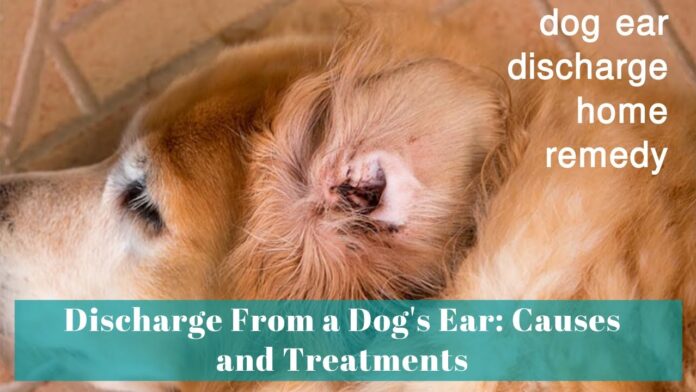Has your pup been shaking their head like crazy because you accidentally got water in your dog’s ear? Don’t panic! This common mishap can happen during bath time or swimming sessions, but there are safe ways to handle it. Let’s dive into everything you need to know about dealing with water in your furry friend’s ears.
Why Water in Dog Ears Is a Concern
When water gets trapped in your dog’s ear canal, it creates a moist environment perfect for bacterial and fungal growth. This can lead to ear infections if not addressed properly. As responsible pet parents, it’s crucial to know how to handle these situations, as discussed extensively in various dog care guides.
Immediate Steps to Take
-
Stay Calm If you’ve accidentally got water in your dog’s ear, don’t freak out Your anxiety might stress your pup out too
-
Dry the Visible Parts
- Use a clean, soft towel
- Gently pat the outer ear area
- Never insert anything into the ear canal
-
Let Your Dog Shake
- Dogs naturally shake their heads to remove water
- This is actually helpful, so don’t stop them
- Keep a towel handy to catch the spray!
Effective Home Remedies
The Cotton Ball Method
- Gently place a dry cotton ball in the outer ear
- Don’t push it in too far
- Replace when saturated
- Repeat until moisture is absorbed
Commercial Ear Drying Solutions
Visit Pet like boss for recommended products, or try these options:- Veterinary-approved ear drying solutions- Commercial ear cleaners with drying agents- Natural solutions like witch hazel (diluted)
Prevention Tips
-
During Bath Time:
- Use cotton balls to block ear canals
- Apply waterproof ear protectors
- Keep water away from head area
-
Swimming Precautions:
- Consider doggy ear bands
- Use canine swim caps
- Dry ears thoroughly after swimming
When to See a Vet
Watch for these warning signs after accidentally getting water in your dog’s ear:- Excessive head shaking beyond 24 hours- Scratching at ears persistently- Redness or swelling- Unusual odor- Discharge- Signs of pain or discomfort
Long-term Prevention Strategies
-
Regular Ear Maintenance:
- Weekly ear checks
- Regular cleaning as recommended by your vet
- Keeping ear hair trimmed
-
Environmental Controls:
- Proper bathing techniques
- Supervised swimming
- Using appropriate ear protection
Common Mistakes to Avoid
-
Don’t Use Q-tips:
- Can push water deeper
- Risk of ear drum damage
- May compact ear wax
-
Avoid Harsh Solutions:
- No alcohol-based products
- Skip home remedies without vet approval
- Don’t use human ear drops
Special Considerations for Different Breeds
Some breeds are more susceptible to ear problems when accidentally getting water in their dog’s ears:
High-Risk Breeds:
- Cocker Spaniels
- Basset Hounds
- Labrador Retrievers
- Poodles
- Golden Retrievers
Extra Care for These Breeds:
- More frequent ear checks
- Special drying routines
- Preventive measures during water activities
Professional Cleaning Options
Sometimes professional help is best:1. Veterinary cleaning2. Professional grooming services3. Specialized ear treatments
The Impact of Recurring Water Exposure
Understanding how repeated exposure affects your dog:- Weakened ear canal defenses- Higher infection risk- Potential chronic conditions
Creating a Dog Ear Care Kit
Essential items to have ready:1. Soft towels2. Cotton balls3. Veterinary-approved ear cleaner4. Ear drying solution5. Protective gear for bath time
Training Your Dog for Ear Care
Make ear care easier with these tips:1. Start young if possible2. Use positive reinforcement3. Make it a bonding experience4. Practice regularly
Understanding Your Dog’s Ear Anatomy
The canine ear canal is:- L-shaped- Longer than human ears- More susceptible to trapped water- Different across breeds
Lifestyle Adjustments
Consider these changes:1. Modified bathing routines2. Controlled swimming sessions3. Regular grooming schedules4. Preventive ear care
Final Thoughts
While it’s scary when you accidentally get water in your dog’s ear, staying calm and taking appropriate action is key. With proper knowledge and preparation, you can handle this common situation effectively and prevent future occurrences.
Remember to always monitor your pet’s response and seek veterinary care if you’re unsure or notice concerning symptoms. Regular ear care and prevention strategies can help minimize these incidents and keep your furry friend happy and healthy.
For more detailed information about dog care and other pet-related topics, visit Pet like boss. Your pet’s health and comfort should always be a top priority, and being prepared for common incidents like water in the ears will help you be a more confident and capable pet parent.












